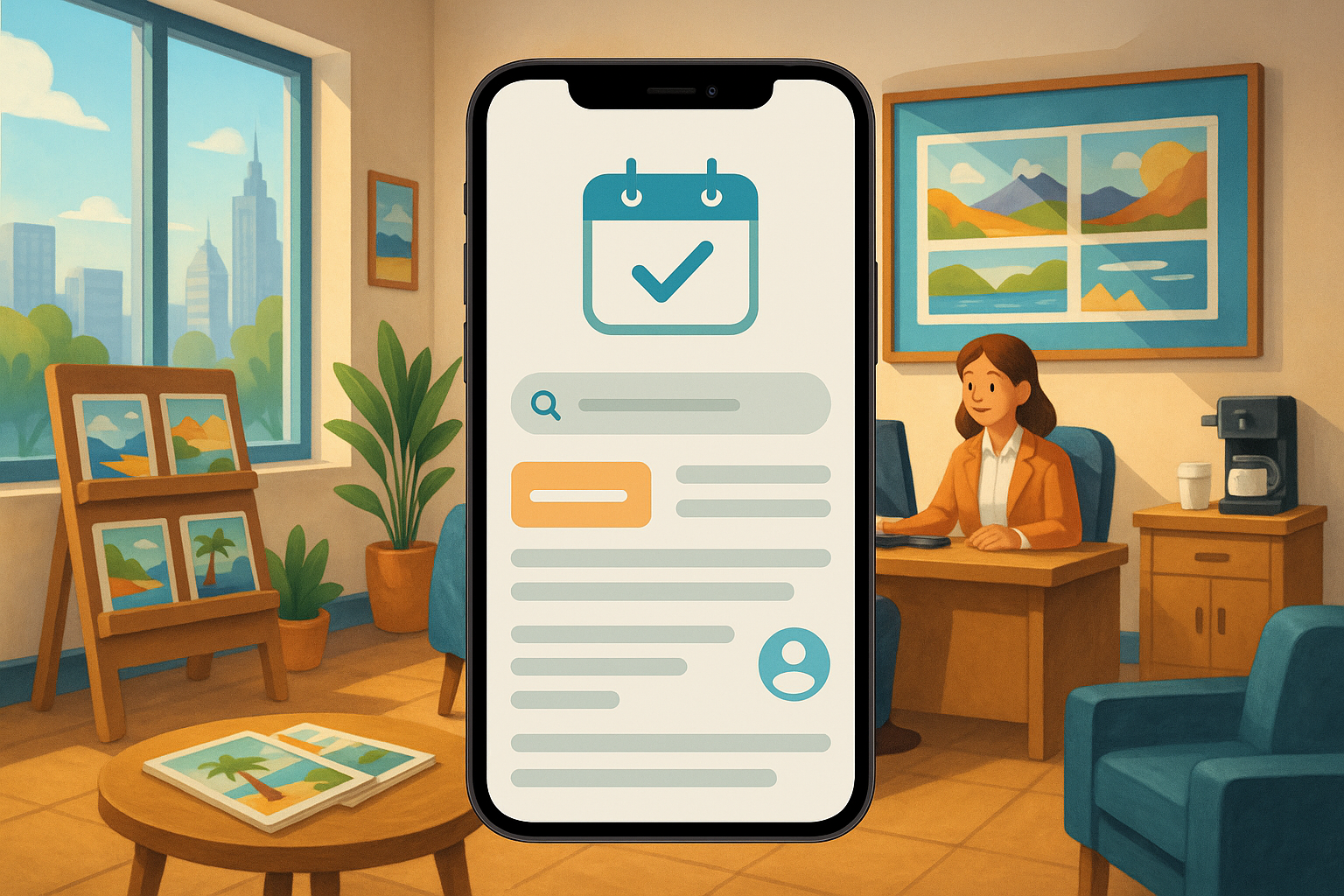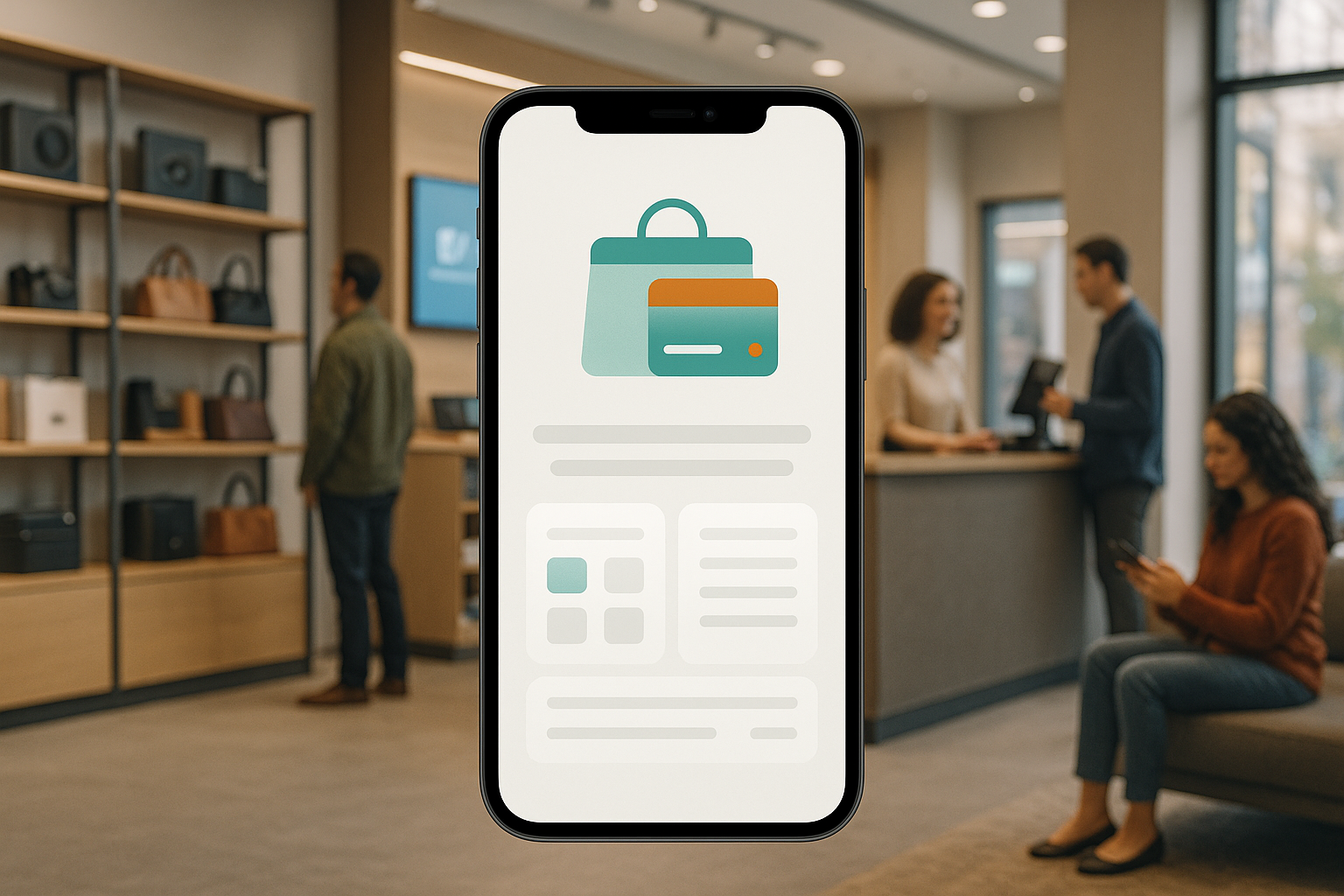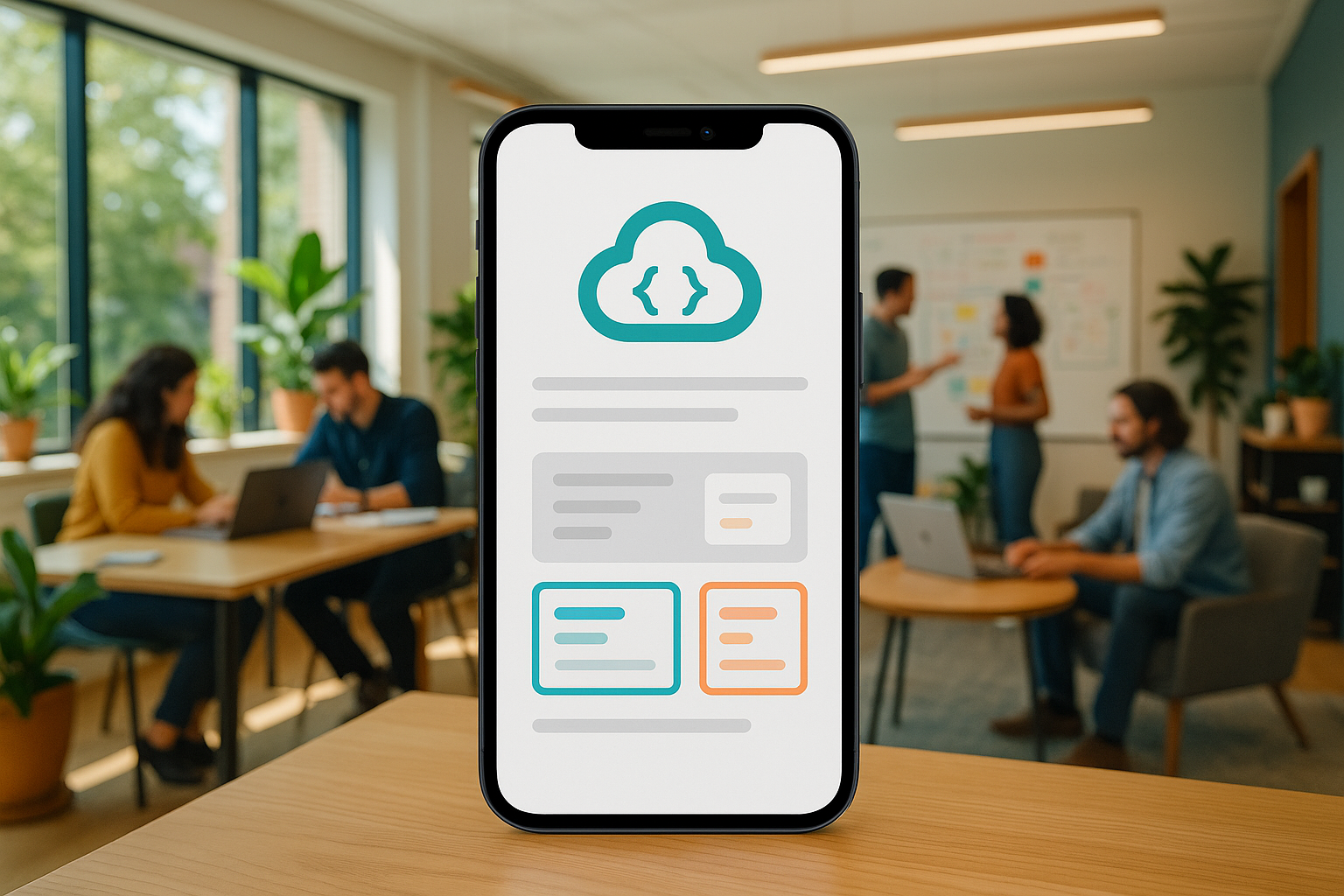Introduction
In today’s digital-first world, the convenience of booking travel, accommodations, or activities with a few taps on a screen is no longer a luxury—it’s an expectation. For businesses in the hospitality and tourism sectors, a powerful booking application is the central hub of their operations. However, the path from a great idea for a booking app to a functional, market-ready product is fraught with complexity. Developing such an application in-house often presents a formidable challenge, requiring a deep bench of technical expertise, significant financial investment, and a nuanced understanding of user experience design.
This article serves as a comprehensive guide to navigating the intricate world of booking app development. We will delve into what constitutes a booking app, explore the inherent difficulties of building one from scratch, and provide a clear-eyed look at the potential costs involved. Furthermore, we will introduce you to the top development companies capable of transforming your vision into reality.
At MetaCTO, we are a top-tier, US-based, AI-powered app development firm with over two decades of experience. We specialize in taking complex ideas and turning them into successful mobile applications. We understand the unique challenges of building booking systems—from real-time data synchronization to secure payment processing. Throughout this guide, we will share insights gleaned from launching over 120 successful projects, demonstrating how partnering with an expert firm like ours can help you build, grow, and monetize your booking application effectively.
What is a Booking App?
At its core, an online booking system, or booking app, is a sophisticated piece of software that empowers a business to receive and manage reservations made directly through its website or a dedicated mobile application. It is an indispensable tool for any enterprise that manages accommodations or offers travel adventures, serving as the digital front door for guests and the operational command center for the business.
The primary function of a booking app is to automate the entire reservation and booking management process. This automation frees up valuable time and resources, but more importantly, it provides guests with a seamless and intuitive booking experience. This is often achieved through a highly customizable booking form that presents guests with a clean, visual calendar to check availability and book their desired period directly. To enhance the user experience, these forms should also feature high-quality photos of rooms, products, and services.
Beyond the guest-facing interface, a robust booking app includes a powerful backoffice. This administrative side should feature a comprehensive calendar that displays crucial information on rooms, existing bookings, and real-time availability in a clear, colorfully categorized manner, allowing for quick operational assessments.
A truly effective booking system is designed with a global audience in mind. Key features that facilitate this include:
- Flexible and Secure Payments: The system should broaden a client’s options for paying online. It must support multiple payment methods, such as PayPal, credit cards, and bank transfers, and allow guests to secure their spot with a deposit.
- Multilingual and Multi-Currency Support: To cater to an international clientele, a booking system must allow guests to book in their preferred language and currency. This personalization should extend to all automated customer communications, ensuring every email, from confirmation to payment reminders, is sent in the guest’s selected language.
- Promotions and Discounts: The best booking software enables dynamic pricing strategies. It allows users to configure and apply promo codes and set up discounts based on various criteria, such as specific time periods, the total amount spent, or the number of people in a booking.
- Automated Communication and Invoicing: A reservation management system should feature intelligent email automation. Templates for booking confirmations, payment reminders, and requests for arrival information should be pre-populated with specific booking details. Furthermore, the system should automatically create professional invoices that include an invoice number, a clear breakdown of products, and various tax rates.
- Smart Check-In and Data Management: Modern booking apps often include a smart web check-in option. This feature allows guests to provide important information beforehand, such as their mode of transportation, expected arrival time, and any dietary restrictions. It also provides an opportunity for the business to upsell additional services. This data, along with all other booking, customer, and financial information gathered, is invaluable for marketing, bookkeeping, and strategic planning. The system should allow for easy export of this data for use in newsletters or other marketing efforts.
Reasons It Is Difficult to Develop a Booking App In-House
While the benefits of a custom booking app are clear, the journey of building one in-house is laden with technical and strategic hurdles. Companies often underestimate the depth of expertise required, leading to budget overruns, delayed timelines, and a final product that fails to meet user expectations. Here are the primary reasons why in-house development is so challenging.
The Sheer Complexity of Features and Integrations
A booking app is far more than a simple form and a calendar. A successful platform requires a suite of interconnected features that must work in perfect harmony. Consider the channel manager integration: synchronizing availability and bookings in real-time with platforms like Airbnb, Booking.com, and Hostelworld is a non-trivial engineering task. A failure in this real-time synchronization can lead to overbookings, which damage customer trust and brand reputation.
Furthermore, integrating a variety of third-party services is essential for a feature-rich experience. This includes:
- Payment Gateways: Integrating with PayPal or Stripe requires handling sensitive financial data securely and complying with regulations like PCI DSS.
- Marketing Tools: Connecting with Google AdWords or Facebook for tracking and analytics requires expertise in their respective APIs.
- Mapping Services: For travel and accommodation apps, integrating Google Maps for navigation is a must, but it adds another layer of development complexity.
Each integration is a project in itself, demanding specific API knowledge, rigorous testing, and ongoing maintenance as these third-party platforms update their systems.
The High Bar for User Experience (UX) and Design
In the competitive digital marketplace, a clunky or confusing user interface is a death sentence for an app. Users expect a booking process that is not just functional but also visually appealing and intuitive. Achieving this level of polish requires a dedicated UI/UX design team with experience in creating frictionless user flows.
The design must be responsive, offering a seamless experience on a desktop browser, a tablet, and a smartphone. The booking form itself must be highly customizable to match the business’s branding, creating a cohesive and trustworthy impression. Advanced design elements, such as interactive maps or personalized recommendations powered by AI, require even greater design and engineering expertise, pushing up costs and complexity. Even minor design adjustments can have a ripple effect, requiring changes across the application’s front end and back end.
Navigating the Technical Architecture Maze
Choosing the right technical foundation for the app is one of the most critical decisions. The choice between native, hybrid, or cross-platform development has significant implications for cost, performance, and user experience.
- Native Development (iOS and Android): Building separate apps for each platform incurs higher costs and requires specialized developers for each ecosystem. However, it offers the best performance, direct access to device features, and the most refined user experience.
- Hybrid or Cross-Platform Development: Using frameworks like React Native or Flutter can save money by allowing developers to write code once and deploy it on both platforms. The trade-off often comes in the form of performance limitations or a less “native” feel.
Beyond the front end, a robust and scalable backend architecture is necessary to handle the business logic, database management, and API communications. Building this from the ground up requires experienced backend developers who can ensure the system is secure, efficient, and capable of handling growth. An agency like ours, through services like Fractional CTO, can provide the high-level technical guidance needed to make these critical architectural decisions correctly from day one.
Cost Estimate for Developing a Booking App
Determining the exact cost of developing a booking app is challenging, as the final price depends on a multitude of factors. However, based on industry data, we can provide a general estimate. The average cost to develop an app with functionality similar to Booking.com typically ranges from $30,000 to $80,000, though this figure can increase significantly with added complexity.
Let’s break down the costs associated with the different phases of development:
| Development Phase | Estimated Cost Range |
|---|---|
| Core Functionality (Search, Booking, User Accounts) | $15,000 – $25,000 |
| Advanced Features (Per Feature) | $5,000 – $10,000 |
| Mobile App Development (Front End) | $10,000 – $20,000 |
| Backend Development | $5,000 – $10,000 |
| Project Management & Testing | $5,000 – $10,000 |
Factors That Influence the Final Cost
Several key variables can drive the total cost up or down:
-
Features and Complexity: This is the most significant cost driver. An app with basic features like search, booking, and user profiles will be on the lower end of the cost spectrum. Each advanced feature—such as channel manager integration, dynamic pricing rules, automated invoicing, or AI-powered recommendations—adds to the development time and cost. Integrating third-party services like Google Maps or payment processors like PayPal also increases the budget.
-
Platform Choice (iOS, Android, Web): Developing separate native apps for both iOS and Android will be more expensive than creating an app for a single platform or a mobile-responsive website. While a cross-platform approach can reduce initial costs, it may require additional work to optimize performance and achieve a native look and feel.
-
Design Complexity (UI/UX): A clean, simple design with a standard layout is less expensive to produce. Conversely, a highly customized interface with custom graphics, complex animations, and interactive elements requires more specialized UI/UX expertise and will increase the design and development costs.
-
Development Team Location: The geographic location of the development team has a major impact on the overall price. Development talent in North America and Western Europe typically commands higher hourly rates compared to teams in Eastern Europe or Asia. While offshore teams can be less expensive, it’s crucial to vet their communication skills, project management processes, and code quality to avoid hidden costs down the line.
Top Booking App Development Companies
Choosing the right development partner is paramount to the success of your project. An experienced agency brings not only technical skills but also strategic insight, proven processes, and a portfolio of past work. Here are some of the top companies in the space.
1. MetaCTO
At MetaCTO, we do more than just build apps; we build businesses. As a US-based firm with 20 years of experience, we provide AI-enabled mobile app design, strategy, and development from concept to launch and beyond. With a 5-star rating on Clutch and over $40 million in fundraising support for our clients, our track record speaks for itself.
Integrating sophisticated booking functionality into a mobile app is one of our core competencies. We understand that the difficulty lies not just in writing the code, but in architecting a system that is secure, scalable, and seamless. The challenges of real-time data synchronization, secure payment gateway integration, and creating an intuitive user flow are where our expertise truly shines.
Hiring an agency like MetaCTO de-risks your project. Our established process, from a Rapid MVP Development launch in 90 days to our ongoing App Growth services, ensures that every step is handled with expert guidance. We handle the entire lifecycle—Validate, Build, Grow, Monetize, and Evolve—transforming your big idea into an app that exceeds your expectations. We are your technical partners, dedicated to building a solution that increases your profit and valuation.
| Feature | MetaCTO |
|---|---|
| Rating | 5.0/5.0 (Clutch) |
| Services | AI Development, Mobile App Development, Fractional CTO, Project Rescue |
| Min. Project Size | Custom |
| Hourly Rate | Custom |
| Company Size | 10 - 49 employees |
| Key Differentiator | AI-powered development, 90-day MVP launch, full-lifecycle support |
2. Appinventiv
Appinventiv is a large mobile app development company that has experience building for the travel and booking industry. They designed and developed a mobile app for a travel guide and tour booking platform, where they were also responsible for QA and user acceptance testing. Recognized for their expertise in iOS and Android development, Appinventiv is noted by many clients for its technical proficiency and project management skills.
Client feedback offers a balanced perspective. While 57% of their clients highlight their technical capabilities, 43% have noted challenges with communication and responsiveness. The company is appreciated for its flexibility and commitment, though some reviews point to areas for improvement in documentation and scaling.
| Feature | Appinventiv |
|---|---|
| Rating | 4.7/5.0 (88 reviews) |
| Avg. Project Cost | $50,000 - $199,999 |
| Min. Project Size | $50,000+ |
| Hourly Rate | $25 - $49 |
| Location | New York, NY |
| Company Size | 1,000 - 9,999 employees |
3. AppsChopper
AppsChopper is another reputable mobile app development company known for its expertise in iOS and Android development. They successfully created and delivered a mobile app for a bus ticketing platform in less than two months. The client on that project noted that AppsChopper’s team was always ready with solutions and had superior communication, skills, and work ethic compared to other vendors.
Clients universally commend their technical knowledge and design capabilities. Around 90% of their reviewers highlight their dedication and effective communication. They are particularly appreciated for their ability to handle last-minute changes and deliver high-quality, functional applications within tight timelines. A unique aspect of their offering is a set of fixed-price packages for different business sizes.
| Feature | AppsChopper |
|---|---|
| Rating | 4.8/5.0 (40 reviews) |
| Avg. Project Cost | $10,000 - $49,000 |
| Min. Project Size | $25,000+ |
| Hourly Rate | $50 - $99 |
| Location | New York, NY |
| Company Size | 50 - 249 employees |
Conclusion
Developing a booking application is a significant undertaking, but it is a critical investment for any business in the travel, tourism, or hospitality industries. As we’ve explored, a successful booking app is a complex ecosystem of features, from intuitive, guest-facing booking forms and secure payment systems to powerful backoffice management tools and third-party integrations.
We’ve also seen that the path to creating such an app is filled with challenges. The technical complexity, high standards for user experience, and significant costs make in-house development a risky proposition for many. The cost can range widely, from $30,000 to over $80,000, depending on the complexity of features, design, and choice of platform.
Partnering with an expert development agency is often the most effective way to navigate these challenges. A firm with a proven track record can provide the strategic guidance, technical expertise, and project management discipline needed to deliver a high-quality product on time and within budget. By choosing a partner like MetaCTO, you gain more than a team of developers; you gain a strategic ally dedicated to helping you build, launch, and grow a successful business.
If you are ready to turn your idea for a booking app into a reality or need to integrate sophisticated booking functionality into your existing product, the journey starts with a conversation.
Talk with a booking expert at MetaCTO to build a powerful application that meets your business goals and delights your users.






